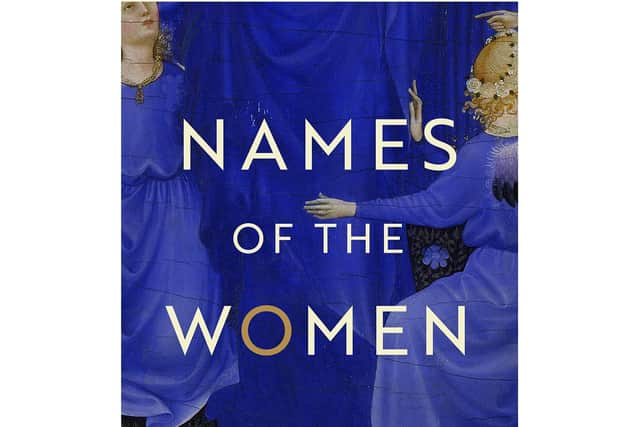Book review: Names of the Women, by Jeet Thayil


I have to confess I have a slight wariness around novels which retell part of the Bible. There are very good examples, by writers like Richard Beard, Naomi Alderman, Colm Toibin and José Saramago; but far too frequently “the greatest story ever told again” can be strident, sentimental or just plain silly. That said, I was intrigued by Jeet Thayil’s take, Names Of The Women. For one thing he is a very adroit writer, whose novel Narcopolis was shortlisted for the Booker Prize. More intriguingly, he grew up in Kerala Syrian Christian community and was educated by the Jesuits. His author biography includes a nice little anecdote, saying “Jeet’s grandmother, Chachiamma Jacob, was the last of the family who recited from memory the hour-long service in Aramaic, Malayalam and Sanskrit that still defines the faith.” But the real interest here is in the concept of the novel. Thayil’s novel gives voice to the women of the New Testament (the Gospels specifically), to recover the suppressed. What we get is a theologically well-informed, imaginative and affecting book which acts as a rebuke. In the words he gives to Jesus “Know they will shame your names because you are the future. They will say there is only one true church when there are as many as there are tongues upon the earth”.
Although we begin with Jesus himself, on the cross, the greater part of the book is appropriately narrated by the women; namely, Mary of Magdala (called Mary Magdalene, and as it puts it curtly, “hundreds of years later men who have never met her will call her a fallen woman”); Susanna the Barren; “Old Mary”, the mother of James and Salomé (we do have a lot of Marys); Aquila, the servant of the high priest Caiaphas (he indubitably had servants, and there is an Aquila in Paul’s letters, but Thayil’s is a fictional interpolation); Mary and Martha, the siblings of Lazarus; Junia (another fiction based on an actual name, and here the model for the woman who gave her small donation that was worth more to her than the priestly offerings); Huldah, Thayil’s name for the woman taken in adultery; the more famous Salomé and her mother Herodias; Joanna, the wife of Herod’s chamberlain; the sisters of Jesus, Assia and Lydia; Shoshamma, supposedly the wife of Dismas the Penitent Thief, and, of course, the Blessed Virgin Mary. Even just cataloguing them shows the occluded prominence of women in the Gospel narratives. With Assia and Lydia, there are texts such as The History Of Joseph the Carpenter which include their names, and Thayil does draw on the apocryphal, Gnostic and later texts, such as The Gospel Of Mary and The Protoevangelium Of James. (He misses a slight trick as the latter gives us the name of Mary’s midwife – yet another Salomé.)
Advertisement
Hide AdThayil’s rendition of scenes like the crucifixion or the beheading of John the Baptist are both harrowing and poetic: “I was inside the sound of my own splintering,” his Christ thinks. What attracts the women to Jesus is a radically new moral vision. This is a world in the process of being turned upside-down, with the excluded brought to the centre. It is not a wholly comfortable vision – “we are not weak and we must not forgive”, “each man and woman may also be my twin, identical to me, more than Christians: Christs” – but it does capture a sense of the paradox of “the Way” as it was originally called. In essence, it proclaims an old adage taught to me by more than one minister, that the purpose of the faith is to comfort the disturbed and disturb the comfortable. It, like Jesus and his female disciples, can appear unorthodox.


It is strangely orthodox in making Mary of Magdala the pivotal female, especially as she is now known as “the apostle to the apostles” since she was the first at the empty tomb. Although anyone can read that Jesus had siblings, Thayil toes the line in the assertion that they are Jospeh’s children by a previous marriage (whether this makes them step-siblings or half-siblings might start a schism). Perhaps the only part I found less than satisfactory was the depiction of the Virgin Mary. Parts are exquisitely beautiful. His version of the Annunciation reads “She cannot touch the world and its glittering surfaces, where everything is an arrangement of feathers. The world is a feather that might blow away.” But we do not get the Magnificat, where Mary truly is centre stage and singing a hymn about the end of tyranny. Nor do we get those peculiar verses in Luke’s Gospel where we are told “but Mary kept these things and pondered them in her heart”; particularly mournful the second time where she has just heard Jesus praised by the aged Simeon and the elderly Anna, daughter of Phanuel, and is told “a sword will pierce your heart, too.”
This is a fascinating and beautiful book. You most certainly do not have to be either a Christian or a feminist to appreciate it, and, in fact, if you are neither it might make you think twice about both.
Names Of The Women, by Jeet Thayil, Jonathan Cape, £15.99
A message from the Editor
Thank you for reading this article. We're more reliant on your support than ever as the shift in consumer habits brought about by coronavirus impacts our advertisers.
If you haven't already, please consider supporting our trusted, fact-checked journalism by taking out a digital subscription at https://www.scotsman.com/subscriptions